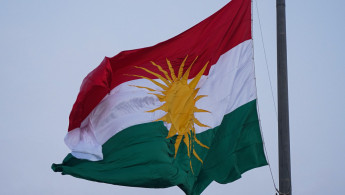Iraq's election committee say cannot hold parliamentary elections in IKR in November
Iraq's electoral commission on Wednesday said it could not hold parliamentary elections in the Kurdistan region in November, coincidently with Iraq's provincial elections. It suggested the Kurdish authorities delay the elections until February next year.
Provincial elections are scheduled for 18 November in 15 Iraqi provinces, excluding the northern Kurdish region.
Parliamentary elections in the Kurdistan region have been delayed several times since late 2022 due to disputes between its two main parties - the Kurdistan Democratic Party (KDP) and the Patriotic Union of Kurdistan (PUK).
Consequently, the Kurdistan parliament extended its mandate for another year, and the President of the Kurdistan Region, Nechirvan Barzani, had identified 18 November 2023 for holding new elections.
Iraq's Federal Supreme Court, however, on 31 May ruled against extending the term of the Kurdistan region's parliament as contrary to the country's constitution, declaring the Kurdish legislature as terminated and ordering the Iraqi Independent High Electoral Commission (IHEC) to supervise fresh general elections in the region.
The Independent High Electoral Commission of #Iraq (#IHEC) responded to a letter from the Presidency of the #Kurdistan Region on July 18, 2023, proposing that the Kurdistan Parliament elections be held on February 18, 2024, or after that date.
— Abdulrahman Hamdi (@AbdHamdi73) July 19, 2023
In its official response, the IHEC… pic.twitter.com/J7k1edfxD0
In a letter addressed to the Kurdistan Region Presidency, IHEC on Tuesday said it cannot hold the region's elections on 18 November simultaneously with Iraq's provincial elections.
IHEC also clarified that due to technical issues, it could not hold the elections this year and proposed for the region's presidency that 18 February 2024 or later might be suitable for holding the vote. It emphasized that an adequate period is needed to be able to take the measures required to have a "fair election" in the region.
The New Arab contacted Jumana Al-Ghalay, spokesperson for IHEC, but she did not respond to a written request for comment.
The last parliamentary election, held in September 2018, witnessed a low turnout of 57% and was marred by alleged large-scale voter fraud by the Barzani clan's KDP and Talabani clan's PUK.
TNA spoke with several people in Sulaimaniyah City about the upcoming election. Most of the people, who wished not to be named, fearing reprisal from the Kurdish authorities, said supervising the elections by IHEC would reduce the chances of large-scale voter fraud by the two ruling parties.
The Kurdistan parliament includes 111 seats; women have a minimum quota of 30 per cent, while 11 seats are allocated to parties that represent minority groups.
In May, an Iraqi lawmaker filed a legal case at Iraq's Supreme Federal Court to cancel the allocation of 11 quota seats for the minorities in the Kurdistan parliament, arguing that the KDP has exploited the quota for itself and the minorities cannot elect their genuine representatives.




 Follow the Middle East's top stories in English at The New Arab on Google News
Follow the Middle East's top stories in English at The New Arab on Google News


